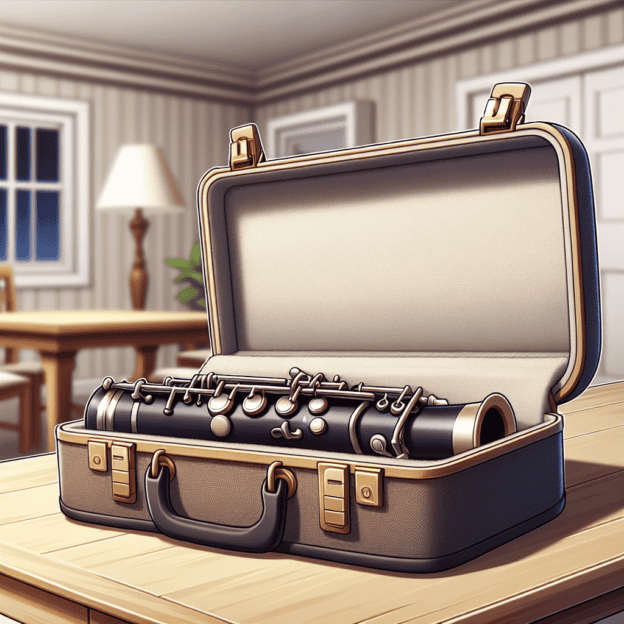When you own a precious clarinet, like those from Martin Freres, keeping it safe is one of your top priorities. A reliable clarinet case lock plays a significant role in safeguarding your instrument from damage and theft. In this post, we explore everything you need to know about clarinet case locks — how to choose them, maintain them, and ensure they keep your clarinet secure.
Why You Need a Good Clarinet Case Lock
You wouldn't want to see your cherished clarinet bounce out of a poorly secured case, would you? The right clarinet case lock not only protects your instrument but also gives you peace of mind during travels or busy school days. It's like having a guardian for your beloved Martin Freres clarinet!
Types of Clarinet Case Locks
Just like clarinets, locks come in various types. Here are a few common ones:
| Lock Type | Pros | Cons |
|---|---|---|
| Combination Locks | No keys to lose, customizable code | Can forget combination |
| Key Locks | Simple, reliable | Keys can be lost |
| TSA Locks | Travel-friendly, TSA-approved | Slightly less secure |
Choosing the Right Clarinet Case Lock
When picking a lock, consider your lifestyle and needs. Are you always on the move? Go for a sturdy, travel-friendly lock. Do you need something easy for daily use? A trusty key lock will do the trick. Whatever you choose, always prioritize quality and durability to ensure your Martin Freres clarinet remains safe.
Installation Tips
Now that you've picked the perfect lock, the next step is attaching it securely:
- Read the instructions that come with your lock. Manufacturers usually provide clear steps to follow.
- If it's a combination lock, set your unique code before securing it on your case. Make sure it's something memorable but not easily guessed.
- For key locks, test the lock several times to ensure it works smoothly. Keep a spare key in a safe place, just in case.
- Regularly check the lock's function. Like any equipment, locks can wear out or become faulty over time. A quick check now and then can prevent any security lapse.
Troubleshooting Common Lock Issues
Got a jammed lock? Don't worry! Here's what you can do:
- Stuck Combination Lock: Try moving each digit slowly, feeling for the click of the correct digit. Patience is key.
- Key Won't Turn: Apply a small amount of lubricant on the key and lock mechanism. Gently jiggle the key while turning.
- Bent Key: If your key is bent, do not force it. Instead, gently straighten it with pliers or get a replacement cut from a locksmith.
Maintenance Tips
Just like you maintain your clarinet, your lock needs some care too:
- Keep it clean: Wipe down the lock regularly to remove dust and dirt that can cause wear.
- Lubricate: A drop of oil can keep the lock mechanisms working smoothly. Avoid over-lubrication as it can attract dust.
- Test: Regularly test the lock to ensure it functions correctly. A faulty lock is worse than no lock at all!
Conclusion
At the end of the day, the safety of your clarinet boils down to a good, reliable lock. Whether it's a combination lock for convenience or a TSA lock for travel, choose what best fits your needs. And remember, a well-maintained lock ensures your Martin Freres clarinet stays protected and ready to play its beautiful melodies. Happy playing, and stay secure!







